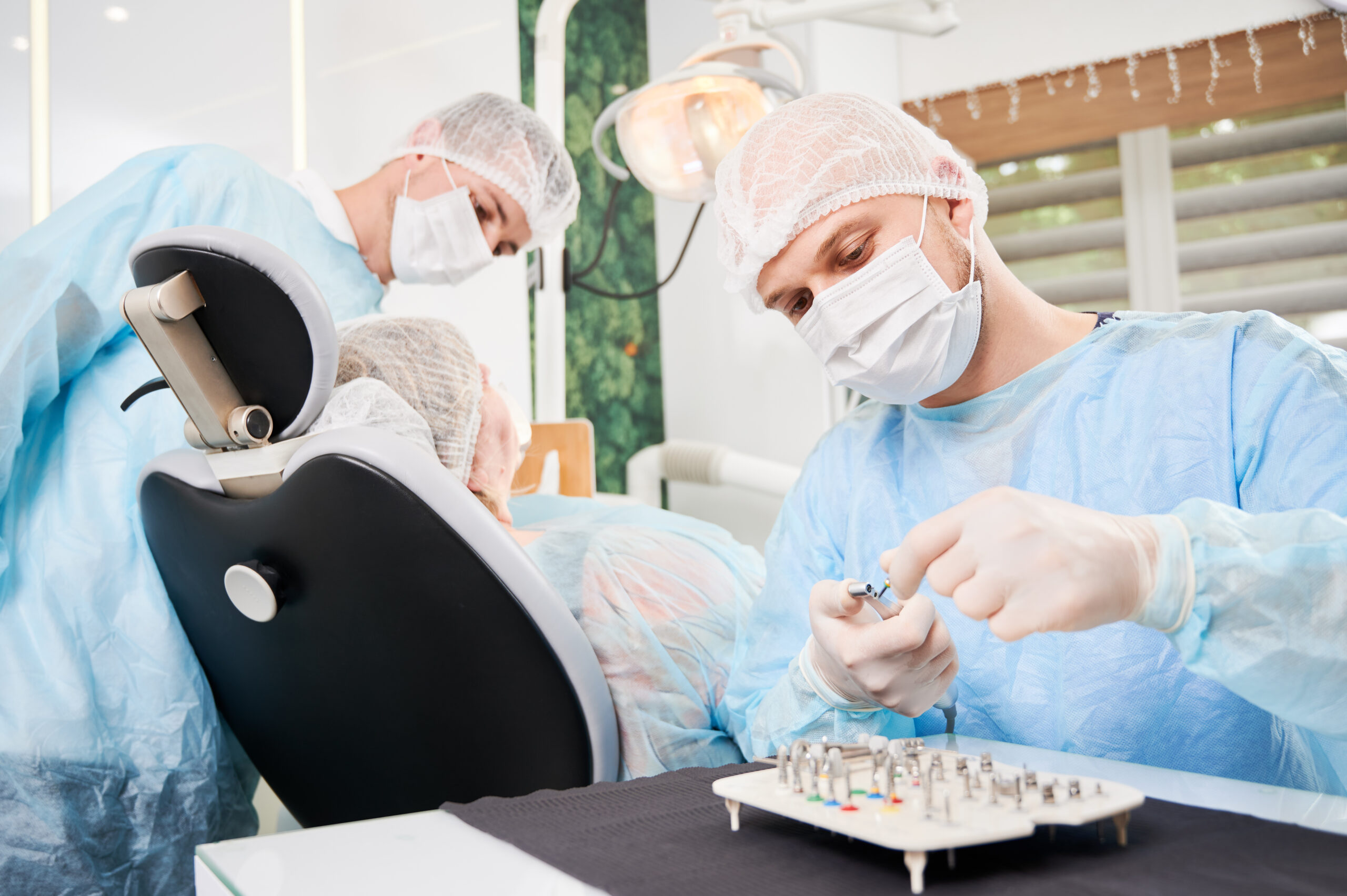Understanding lost crown repair
If you have ever experienced a lost or dislodged dental crown, you know how unsettling it can feel. Whether you notice increased sensitivity, pain, or difficulty chewing, the situation can lead to discomfort and concerns about long-term oral health. Fortunately, medicaid lost crown repair provides a potential lifeline if you qualify, ensuring you have options for restoring your smile without shouldering a massive financial burden. In this article, you will discover how crowns work, why they sometimes fail, and how Medicaid may help cover the replacement or repair of a lost crown. By understanding these details, you can make informed decisions for yourself or a loved one and continue to enjoy a healthy, confident smile.
Explaining the role of crowns
Dental crowns play a vital role in restorative dentistry. They serve as protective caps that fit over a damaged or weakened tooth, restoring both function and appearance. When your tooth enamel has been compromised by decay or injury, a crown helps safeguard what remains of the tooth structure. In many cases, crowns are also used to complete treatments like root canals, bridging the gap between the affected tooth and its surrounding structure.
Crowns are typically made from porcelain, porcelain-fused-to-metal, or ceramic. Porcelain and ceramic offer aesthetic benefits because they can be color-matched to your existing teeth, leaving you with a bright, natural-looking smile. Metal-alloy variations sometimes work well for back teeth, as they are strong enough to handle maximum chewing forces. Whichever type you use, the main intent is to provide comprehensive care for your tooth, reducing pain and preserving functionality.
Why crowns fail or dislodge
While modern dentistry has evolved to make crowns highly durable, no restoration is entirely immune to daily wear and tear. A crown can fail or dislodge for several reasons:
- Excessive forces or trauma: Biting into very hard foods or experiencing an accident can weaken the bond between your tooth and your crown.
- Decay beneath the crown: If parts of the underlying tooth are exposed to bacteria, decay can undermine the crown’s stability.
- Poor bite alignment: If the original crown placement leaves you with a misaligned bite, uneven force distribution can loosen the crown.
- Natural wear of cement: The cement or bonding material can degrade over time, reducing the crown’s retention.
When a crown becomes loose or dislodges altogether, you risk exposing the tooth’s inner layers to bacteria, potentially leading to further infection or damage. It is crucial to seek timely repair or replacement to protect your oral health.
Exploring Medicaid options
Medicaid can be a valuable resource if you worry about covering the cost of replacing or repairing a lost dental crown. Knowing what Medicaid typically covers, how states differ in their reimbursements, and when a crown might be considered medically necessary can guide you toward the right solution.
What Medicaid typically covers
Medicaid is a government-funded program that aims to provide low-income individuals and families with access to essential healthcare. In many states, Medicaid includes dental coverage, though the extent of benefits can vary significantly. Dental benefits for adults may feature preventive services, basic restorative treatments, and medically necessary procedures. If your need for a crown repair qualifies as medically necessary, Medicaid could cover a portion—or in some cases, the majority—of the expenses related to your procedure.
These services might include:
- Examination of the damaged tooth
- X-rays or imaging to determine underlying issues
- Replacement or repair of a crown deemed essential to preserve oral health
- Follow-up care to ensure proper healing and integration
However, Medicaid’s dental coverage guidelines are not uniform nationwide. Some states may offer robust dental packages, while others might limit coverage to emergency-only procedures. Before scheduling your appointment, consider consulting with an expert or taking advantage of Medicaid eligibility guidance to clarify your benefits. The right knowledge can help you avoid unexpected costs and ensure that your crown repair remains within financial reach.
State variations in reimbursement
If you are curious about your state’s specific dental coverage, you are not alone. Many people find navigating state-by-state differences confusing. According to the American Dental Association, Medicaid reimbursement rates for dental services can vary widely. Each state sets its own rules and fee schedules for covering procedures like a crown replacement, often taking into account local policy priorities as well as overall budget constraints.
In some states, Medicaid might pay the majority of the renewal or repair costs tied to crown work, making it an excellent avenue for addressing your lost crown. In others, the coverage might be limited, meaning you could still face a considerable out-of-pocket expense. Additionally, the actual reimbursement can depend on factors like:
- The type of crown material you require
- The nature of your tooth damage
- Any co-existing dental conditions that might complicate the procedure
Since cost matters significantly to many households, it is wise to check with your local Medicaid office or the dental provider of your choice about coverage specifics. This step helps you circumvent surprises and frame your budget accordingly, especially if your crown damage is extensive.
When is a crown considered medically necessary?
A crown is generally deemed “medically necessary” if the health and function of your tooth are compromised. This includes cases where significant decay, structural weakness, or severe chipping or breakage leaves the tooth at risk. In many circumstances, a dentist may recommend a crown following a procedure like root canal therapy or a comprehensive medicaid restorative dental treatment, ensuring that your tooth remains stable over the long term.
If you lost your crown due to an accident or sudden trauma, a replacement might also be considered essential to preserving your tooth’s structural integrity and preventing infection. However, each Medicaid program has its own parameters for defining “medical necessity.” Submitting the required paperwork, X-rays, and other documentation can help your provider justify the claim, increasing your chances of proper coverage.
Examining out-of-pocket costs
Even if Medicaid assists with part of the crown repair cost, you will likely want a clear understanding of any potential out-of-pocket (OOP) expenses. Over the last several decades, OOP expenditures for healthcare have risen dramatically, from $24 billion in 1970 to a massive $433 billion in 2021 (PubMed). Dental treatments can be a significant portion of these costs, especially when it comes to higher-level restorative procedures like crowns.
Average costs for crown repair
Without insurance, the price of a dental crown can range between $800 and $2,500, according to Hotaling Insurance Services. In major metropolitan areas, especially places like New York City or Los Angeles, costs can even climb up to $3,500. The final price depends on factors such as:
- The material used (porcelain, ceramic, or metal alloy)
- The complexity of your case (location and tooth damage)
- Additional procedures (like root canal treatment or gum care)
For patients who have insurance, real-world OOP costs generally fall somewhere between $400 and $1,250 per crown, depending on deductibles and annual maximums. Many states also offer financial relief through Medicaid if your situation classifies as medically necessary. This relief can lower or even eliminate your share of the costs.
Additionally, nearly 40% of Americans postponed medical or dental treatment in 2022 because of costs (PubMed). These statistics highlight why coverage matters: having assistance from Medicaid or other programs can encourage timely care instead of waiting for your condition to worsen. The more promptly you address a lost crown, the less chance you have of incurring deeper complications.
Financial assistance and cost-saving tips
If you need a crown repaired and part of your bill is not covered by Medicaid, you can still find ways to reduce your out-of-pocket burden and protect your financial well-being:
-
Utilize Health Savings Accounts (HSA) or Flexible Spending Accounts (FSA)
If you or a loved one has an HSA or FSA, you can direct pre-tax earnings toward crown repair costs, lessening the financial impact. -
Ask about payment plans
Many dental offices offer in-house financing or partnerships with third-party credit providers, enabling you to space out your payments. -
Look for Medicaid-covered complementary services
Sometimes your procedure might bundle with others, such as medicaid broken tooth repair or an additional medicaid dental crown service. Check if combining treatments leads to cost efficiencies and better coverage. -
Consult with your dental provider
A thorough discussion about the material you choose can help you find a balance between cost and durability. Cheaper crowns might work well in less visible areas of your mouth, while porcelain or ceramic is often a priority for front teeth. -
Stay proactive about oral hygiene
Long-term care—regular cleaning, flossing, and checkups—means fewer issues down the road. A healthy environment around your crown also helps prevent recurrent issues like decay.
By utilizing these techniques and planning carefully, you can manage your finances while receiving quality care. Always seek advice from a licensed professional when evaluating how best to handle Medicaid coverage for lost crown repair, focusing on comprehensive care over quick fixes.
Why choose Vivid Dental Raleigh
When you or a loved one need a reliable, modern approach to fixing a lost crown, Vivid Dental Raleigh stands out as a strong partner. Our team focuses on high-tech, aesthetic dentistry solutions, oriented toward your comfort and long-lasting oral health. By creating an individualized plan that addresses your unique challenges, we ensure you receive the support necessary for lasting recovery and a confident smile.
High-tech services and aesthetic focus
Vivid Dental Raleigh prioritizes advanced technology to streamline your dental experience. From digital impressions to advanced imaging techniques, we emphasize precision and patient comfort during every step of your crown repair. The result is a crown that not only fits perfectly but also blends seamlessly with your natural teeth.
Our aesthetic-centered approach is crucial if you are concerned about your front teeth or if you have previous experiences with artificial-looking restorations. With thoughtful material selection, you can keep your smile bright and natural-looking for years to come.
Tailored programs for your needs
Every mouth is different, and each patient has specific circumstances we consider carefully. That is why we design an individualized plan for you, whether you are receiving a simple re-cementation of an existing crown or a brand-new restoration. When you opt for our services:
- You gain access to medicaid restorative treatment planning that considers the scope of your situation and possible coverage.
- You receive open communication each step of the way, including guidance on detailed pricing and potential out-of-pocket obligations.
- You enjoy personalized scheduling, from standard appointments to swift medicaid emergency dental care if the situation is urgent.
We recognize that navigating Medicaid coverage can be complex. Our staff offers an empathetic and supportive environment, making sure you get the assistance you need to handle the paperwork and understand your benefits. Through transparent planning, we help you reduce delays, minimize unexpected fees, and maintain peace of mind throughout the repair process.
Encouraging long-term oral health
At Vivid Dental Raleigh, we believe that a lost crown is more than just a single issue. It is also a chance to evaluate and improve your overall oral health. By addressing your immediate needs while also encouraging good home care, routine checkups, and timely procedures, we bring you comprehensive care that goes beyond one-time fixes.
We can help you maintain consistent checkups to ensure your restored crown remains stable over time. If other issues arise—like a broken tooth, decay, or loose fillings—we can guide you toward services such as medicaid lost filling repair or medicaid tooth extraction service if they become necessary. When you partner with our team, you pave the way for a sturdy, vibrant smile that reflects your best self.
Frequently asked questions
Below are some of the most common questions people have about lost crowns and Medicaid coverage. By learning these key details, you can better prepare for your visit and reduce any uncertainties.
-
What should I do immediately after losing a crown?
If your crown gets dislodged, try to find it and rinse it with warm water. Keep it in a clean container. If you experience discomfort or sensitivity, apply clove oil or an over-the-counter dental cement as a temporary fix. Then, schedule an appointment with your dentist right away, especially if you suspect infection or you’re in significant pain. -
Does Medicaid fully pay for a lost crown repair?
It depends on your state’s guidelines and your specific situation. Some state programs cover a large portion of the cost, while others have a more limited approach. If your treatment is considered medically necessary, coverage tends to be more favorable. Consult with your dentist or contact medicaid dental crown service to clarify your coverage. -
Are there alternative treatments if my crown cannot be reattached?
In certain cases, you might need a new crown or an entirely different procedure, such as medicaid root canal therapy. If your tooth structure is severely compromised, extraction and a replacement option like a dental implant may be necessary. Your dentist will evaluate how best to preserve as much of the original tooth as possible. -
How often do crowns need replacement even if they are not lost?
A crown typically lasts anywhere from five to fifteen years with proper care. Its lifespan varies based on your oral hygiene, diet, and personal habits like teeth grinding. Regular checkups help ensure the crown remains intact, and if issues do arise, prompt attention extends its usable life. -
What if my tooth hurts but I cannot afford immediate care?
Avoid delaying treatment, particularly if you are in pain. If you do not address a lost or failing crown, you risk permanent damage or infection. Ask about an in-house payment plan or third-party financing. You can also explore programs like transparent medicaid dental pricing to see how your budget might align with available treatment plans. Tending to your crown sooner will preserve the integrity of your tooth far more effectively than waiting.
Moving forward with confidence
Repairing a lost crown can sometimes feel like a daunting task, especially if you are worried about expenses. Yet, timely action preserves your tooth and spares you from further complications or pain. If you qualify for Medicaid, you may receive significant support with lost crown repairs—especially if your situation meets the definition of medical necessity. Even if you must cover some out-of-pocket expenses, options like HSAs, FSAs, and flexible payment plans can lighten the load.
At Vivid Dental Raleigh, we pride ourselves on delivering high-tech, aesthetic-focused solutions that cater to your unique challenges. Our tailored treatment programs ensure you receive the support you need to restore oral functionality and preserve the beauty of your smile. Through Medicaid coverage, dedicated customer support, and a compassionate approach, we strive to help you move forward with confidence and clarity.
If you or a loved one has questions about medicaid lost crown repair or simply want to learn more about comprehensive coverage, do not hesitate to reach out. Our team will work with you to figure out the best path forward, combining advanced techniques with personalized care. The result is a healthier, happier smile that will carry you through daily life with renewed comfort and pride. No matter what stage of dental care you are in, Vivid Dental Raleigh is here to support you in achieving and maintaining excellent oral health.










